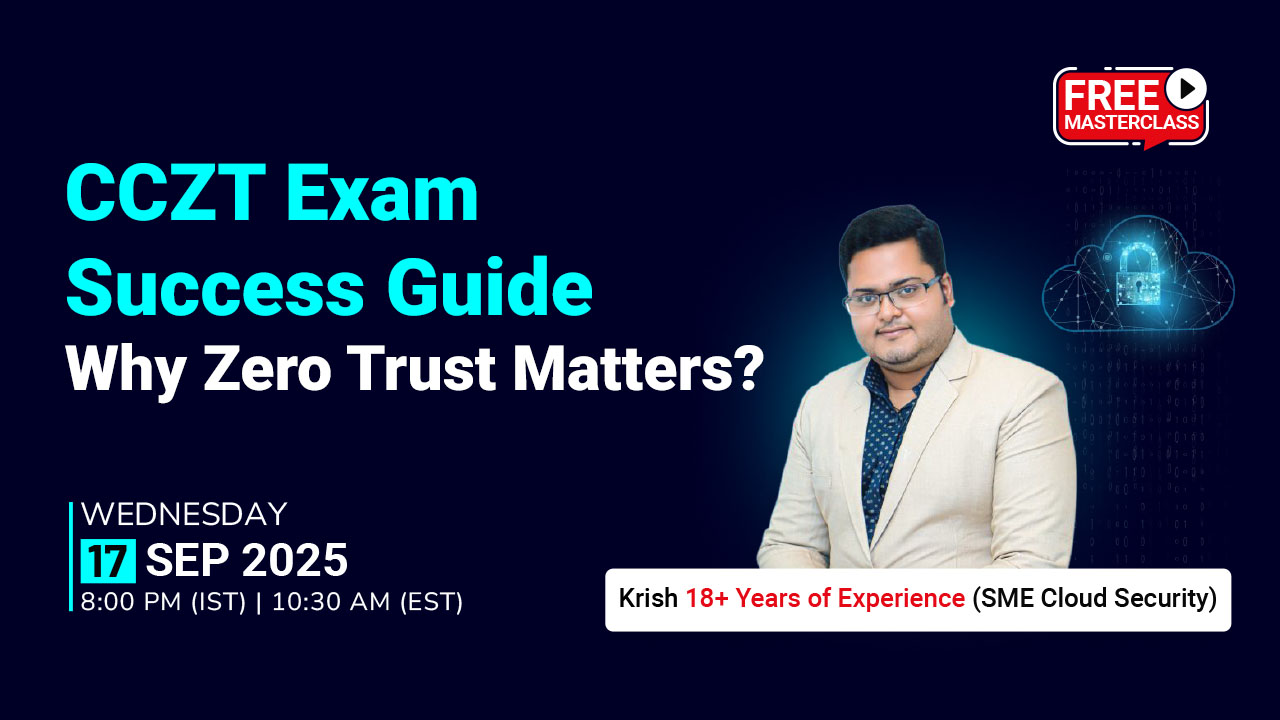Skills Needed to Become a Successful CISO
Despite technical advancements in today’s time, cybersecurity is a massive concern for businesses of all types and sizes. The cost of remediation, penalties and legal fees, and client loss is significant. These businesses recognize that even one severe security incident or data breach might jeopardize their growth and profitability. Therefore, the CISO’s position is becoming more important, as is the necessity for a company-wide IT security plan that supports the purpose and goals. A competent CISO should possess a wide range of technical and soft skills. This article will discuss the many skills required to become a successful CISO.

What is a CISO?
The Chief Information Security Officer (CISO) is a C-level executive who oversees an organization’s information security. In the cybersecurity industry, it is the highest-paying position. As per the Glassdoor report, the average annual salary of a CISO in the United States is $2,96,017 and ₹33,00,000 in India.
Skills needed to become a successful CISO:
- Leadership skills: CISO is a top-level executive; therefore, good leadership skills are necessary for the role. CISOs must be able to build trusted connections with employees rather than authoritarian ones. Building relationships and having the capacity to communicate, delegate, and lead by influence is essential for success. CISOs must clearly define who is involved in security-related decision-making and ensure that they are well-qualified and empowered.
- Communication skills: CISOs are the top-level executives who need to communicate with all the executives, other employees, as well as clients. So they must be aware of who their audience is at any given time and be able to alter their communication style accordingly. When interacting with executive leadership, CISOs must be able to communicate information security in business terms so that it makes sense and is understood. When interacting with non-technical executives, for instance, the CISO must effectively convey security concepts in terms that resonate with their strategic decision-making roles within the organization.
- Collaboration skills: To maintain the security posture, CISOs must be able to collaborate with everyone in their organization. This entails working closely and efficiently with diverse teams like, operations teams, designers, developers, and lines of business across the organization. In simpler terms, CISOs are good at bringing different viewpoints together, making sure everyone talks and works together to uphold the organization’s security posture.
- Cybersecurity ethics: Cybersecurity ethics are vital for a successful CISO. This skill involves understanding the ethical implications of security decisions, ensuring privacy rights are respected, and promoting transparency in security practices. A CISO with strong cybersecurity ethics prioritizes integrity, accountability, and fairness in all aspects of their role, fostering trust with stakeholders and mitigating risks associated with unethical behavior or decisions.
- Empathy: Empathy is what separates a good leader from an average one. A CISO’s ability to engage with business leaders, customers, and workers is based on empathy. Cybersecurity becomes the department of ‘no’ without empathy which hinders collaboration and integration within the organization.
- Knowledge of governance and compliance: The CISO must be an expert in the organization’s most important regulations, standards, and compliance obligations. As a result, the CISO’s research and learning activities may be tailored to the organization’s specific needs, resulting in the development of more effective and relevant processes, procedures, and information security policies.
- Incident management skills: Incident management is critical in any organization. It provides immediate support when something goes wrong, adeptly handling severe security incidents. As a result, developing an incident response program that can detect network breaches and work to clean up and recover from those intrusions is a vital skill for a CISO.
- Self-development: CISOs must commit to continuing their education. They need to find information sources that keep them up to date on all cyber-threat and IT security advancements. The idea is to maintain as large a gap as possible between cybercriminals’ attempts and the organization’s security procedures.
- Business acumen: CISOs must always strike a balance between what is best for security and what is best for business. The objective of the CISO is not to manage the business but to enable it to accomplish its goals in a reasonably secure manner. This necessitates forethought and effective communication with other parties. Therefore, they must have a thorough understanding of their business.
- Implement appropriate security controls: CISOs should be able to work with professional teams to deliver control to the assets and maintain necessary steps to guarantee that the security plan is constantly monitored, reported on, and improved. They should design a strategy that is tailored to the company’s requirements; this will ensure that it lasts longer and performs better.
- Risk management: One of a CISO’s most essential skills is their ability to assess and manage risks effectively. This entails understanding the organization’s assets and the potential threats it encounters. They should be able to proficiently identify potential risks, develop risk mitigation strategies, and adeptly communicate these strategies to stakeholders.
CCISO with InfosecTrain
If you desire to become CISO competent in today’s technology-driven landscape, InfosecTrain will help you out. We are a leading cybersecurity training provider. Our CCISO certification training course will determine your suitability to work as an organization’s highest-level executive responsible for information security. Our certified trainers will help you develop the skills necessary for a CISO.
TRAINING CALENDAR of Upcoming Batches For CCISO
| Start Date | End Date | Start - End Time | Batch Type | Training Mode | Batch Status | |
|---|---|---|---|---|---|---|
| 13-Sep-2025 | 26-Oct-2025 | 19:00 - 23:00 IST | Weekend | Online | [ Open ] |







 1800-843-7890 (India)
1800-843-7890 (India)